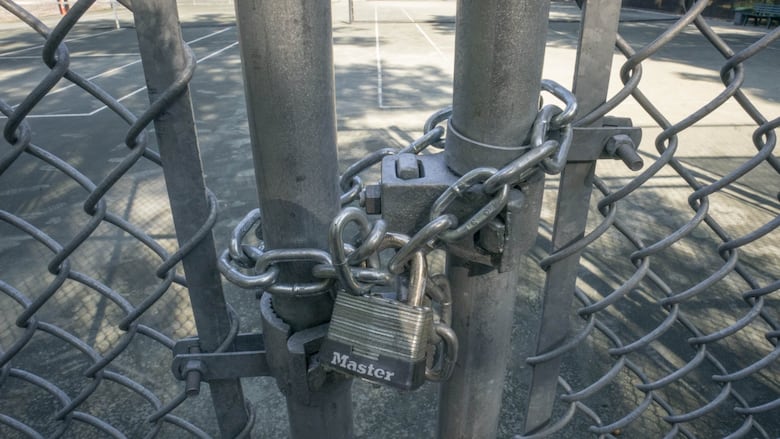Quebec municipalities close clay tennis courts over possible asbestos concerns
High asbestos concentration found in clay, but samples from Saint-Sauveur, Que., courts had none

Several Montreal boroughs and Quebec municipalities have closed their clay tennis courts as a precautionary measure after an analysis found above-standard asbestos concentrations in the products used to maintain the courts.
In Montreal, where the National Bank Women's Open is currently taking place, IGA Stadium management has also ordered the temporary closure of its clay courts.
"Our clay courts were not being used for tennis during the tournament," Tennis Canada said in a statement.
The move comes after the city of Saint-Sauveur, Que., found samples taken from clay produced by an American company had an asbestos concentration of at least one per cent — 10 times the concentration allowed by Quebec standards.
Samples taken by the municipality from an actual tennis court, however, had no traces of asbestos, said the city's executive director Jean-Philippe Gadbois.
After reporting the results to public health, Environment Canada agents seized the city's stocks of clay, but did not order the closure of the fields. Opting for caution, Saint-Sauveur decided to close its clay courts on July 31.
Tennis Québec's executive director Julie Vézina says there are no plans to close all clay courts across the province. The closures seen so far are preventative measures taken by some municipalities.
"We're still awaiting a directive from the provincial government to determine whether this would be necessary," she said.
So far, public health has not issued any advice regarding potential risks associated with clay courts.
The municipalities that have followed Saint-Sauveur's lead include Repentigny, Prévost, Rosemère and some Montreal boroughs like Outremont, Saint-Léonard and LaSalle.
The risk of contracting mesothelioma — a form of cancer linked to the inhalation of asbestos fibres — increases tenfold after even the slightest exposure to the fibres, says Norman King, epidemiologist and scientific advisor for the Quebec association for asbestos victims, known as AVAQ.
He says the closures, however, are no cause for panic.
"If we say that the risk is 10 times greater in someone slightly exposed, it is still a rare disease, it is one case per 100,000 people exposed," he said.
Based on a report by Radio-Canada's Stéphane Bordeleau, translated by Cassandra Yanez-Leyton